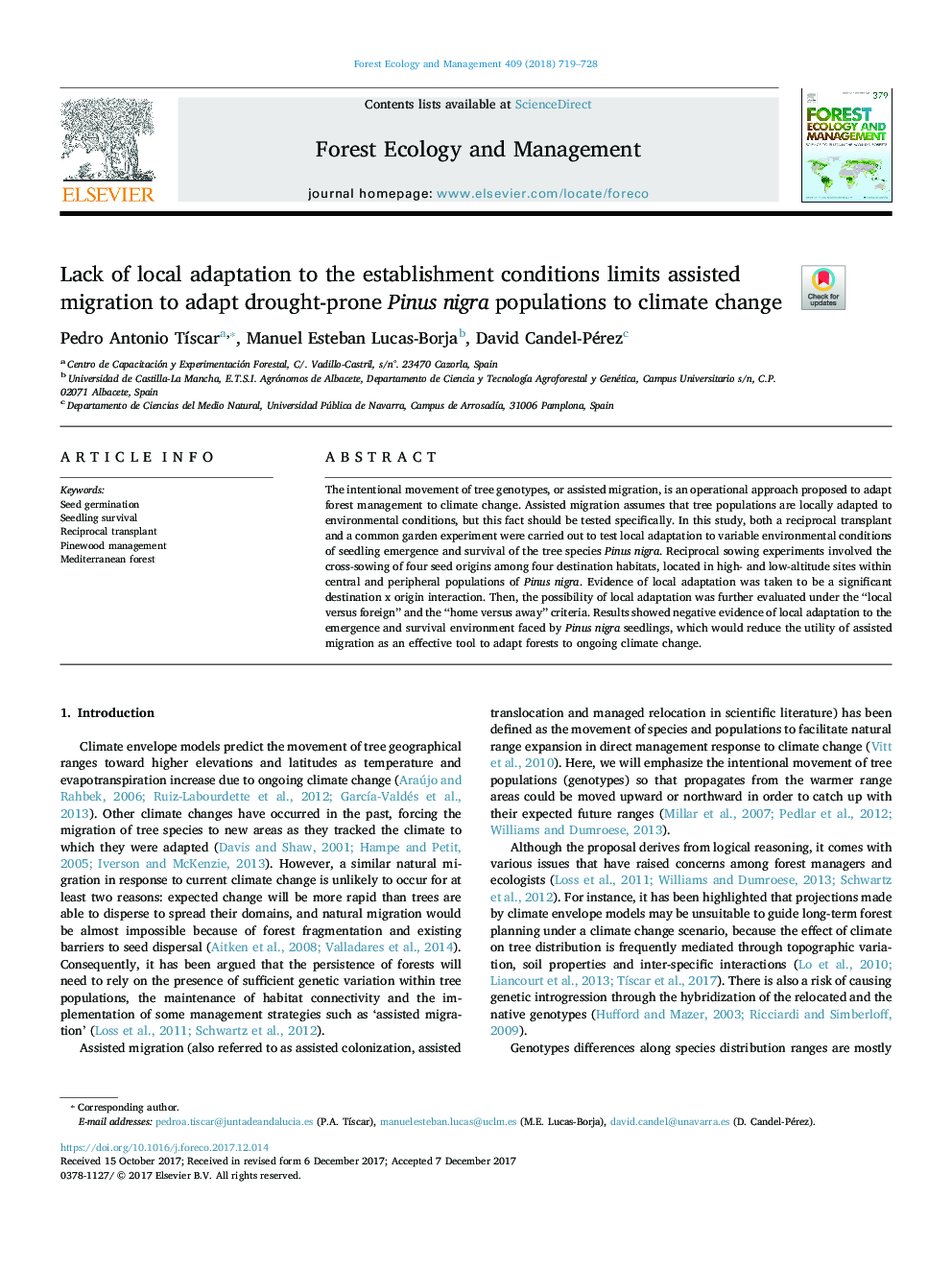| Article ID | Journal | Published Year | Pages | File Type |
|---|---|---|---|---|
| 6541968 | Forest Ecology and Management | 2018 | 10 Pages |
Abstract
The intentional movement of tree genotypes, or assisted migration, is an operational approach proposed to adapt forest management to climate change. Assisted migration assumes that tree populations are locally adapted to environmental conditions, but this fact should be tested specifically. In this study, both a reciprocal transplant and a common garden experiment were carried out to test local adaptation to variable environmental conditions of seedling emergence and survival of the tree species Pinus nigra. Reciprocal sowing experiments involved the cross-sowing of four seed origins among four destination habitats, located in high- and low-altitude sites within central and peripheral populations of Pinus nigra. Evidence of local adaptation was taken to be a significant destination x origin interaction. Then, the possibility of local adaptation was further evaluated under the ''local versus foreign'' and the ''home versus away'' criteria. Results showed negative evidence of local adaptation to the emergence and survival environment faced by Pinus nigra seedlings, which would reduce the utility of assisted migration as an effective tool to adapt forests to ongoing climate change.
Related Topics
Life Sciences
Agricultural and Biological Sciences
Ecology, Evolution, Behavior and Systematics
Authors
Pedro Antonio TÃscar, Manuel Esteban Lucas-Borja, David Candel-Pérez,
